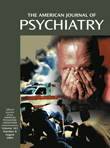Low-Dose Cortisol for Symptoms of Posttraumatic Stress Disorder
Abstract
OBJECTIVE: Because elevated cortisol levels inhibit memory retrieval in healthy human subjects, the present study investigated whether cortisol administration might also reduce excessive retrieval of traumatic memories and related symptoms in patients with chronic posttraumatic stress disorder (PTSD). METHOD: During a 3-month observation period, low-dose cortisol (10 mg/day) was administered orally for 1 month to three patients with chronic PTSD in a double-blind, placebo-controlled, crossover design. RESULTS: In each patient investigated, there was a significant treatment effect, with cortisol-related reductions of at least 38% in one of the daily rated symptoms of traumatic memories, as assessed by self-administered rating scales. In accordance, Clinician-Administered PTSD Scale ratings assessed after each month showed cortisol-related improvements for reexperiencing symptoms and, additionally, in one patient for avoidance symptoms. CONCLUSIONS: The results of this pilot study indicate that low-dose cortisol treatment reduces the cardinal symptoms of PTSD.



